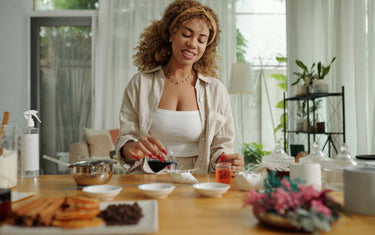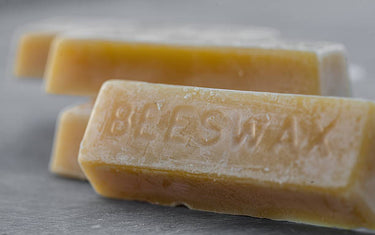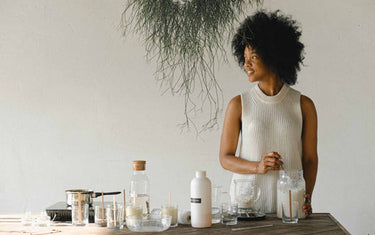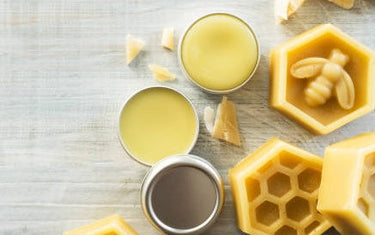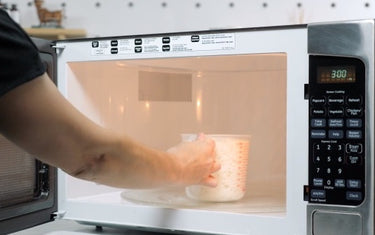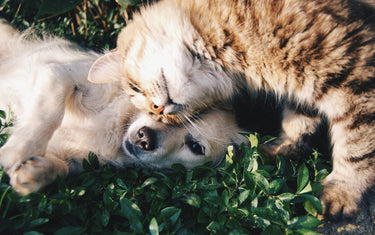5 min read / 15 April 2023 / Laura Garvin Gomez
How to Make a Homemade Bug Spray
Learn how to create your own natural bug spray using essential oils with our step-by-step guide.
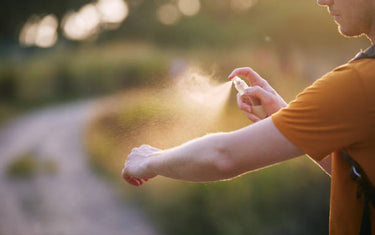
Whilst using chemical-based insect repellents can be effective, not everyone is comfortable being exposed to their strong synthetic ingredients.
A growing number of people are changing to natural homemade repellents for bugs and insects, as they are safe to use and kinder to the environment.
Here we look at how to make an essential oil insect repellent and explain how it can keep your home bug free during the spring and summer.
What is a homemade insect spray?A homemade insect spray is a chemical-free alternative that is eco-friendly, kinder to bugs and also reduces your exposure to harsh ingredients. They are quick and easy to make and can be just as effective as commercial insect repellent solutions, so you can create a better environment inside and outside of your home. |
What are the benefits of making a natural bugspray?
If you make your own natural bug spray you’ll enjoy benefits such as:
- They are chemical free: By using essential oils, you are avoiding chemicals such as DEET (diethyltoluamide), which in some cases has been found to cause skin irritation. Commercial mosquito products often contain cyfluthrin which has been linked to neurological damage in humans.
- Safer for children: You’ll naturally want to limit your children’s exposure to chemicals, and using a natural alternative will give you more peace of mind. Children’s skin can be more sensitive, so only use heavily diluted essential oils in small amounts.
- Better for the environment: Whilst the chemicals used in commercial products are classified as safe to use for humans, it doesn’t mean they are necessarily helpful for nature. Spraying outside also means plants and flowers are exposed to chemicals, with essential oils offering a softer and kinder alternative for your garden.
And depending on the essential oils used in your homemade insect spray, you will also be able to enjoy the individual health benefits they have to offer.

What are the best ingredients for a homemade bug spray?
Essential oils are considered the best option for homemade insect sprays, as they are safe to use once they have been diluted. Some of the most popular ingredients are:
- Use citronella essential oil to keep mosquitos and other bugs at bay: Citrus and citronella oil are commonly used as homemade bugsprays. Studies suggest that citronella may be a powerful deterrent against mosquitos, as well as mites, flies, fleas and more. Citronella essential oil also works well in homemade cleaning sprays and in natural shampoos to combat dandruff.
- Keep bug free in the garden with lavender essential oil: Another option could be to use lavender essential oil to ward off mosquitos and other flying bugs. Studies appear to back up this claim and you can also use lavender oil on your skin without worry (although you should always carry out a patch test). Lavender oil is also great for helping you to relax and enjoy a better night’s sleep when used in the evening.
- The fresh fragrance of peppermint oil is a nightmare for insects: People use peppermint essential oil for all types of things, whether it’s to boost energy, rejuvenate sore muscles or to improve breath flow. It’s the ideal ingredient for a homemade insect spray as it can kill and repel mosquitos and help to ward off spiders around your home.

How to make an insect repellent sprayThere are a few different ways to make a homemade bugspray and we’ve put together some options for your home, garden and skin. Homemade insect spray for your home and gardenIdeally, you’ll need a homemade insect repellent that is suitable for use indoors and outdoors. To make a homemade bug spray for your home follow these steps:
Our insect repellent blend can work as a fast and effective bug repellent. It combines citronella, lavender and lemon essential oils and can also be used as a homemade cleaning spray. Homemade bug spray for your skinMosquitos can be a real pest during the spring and summer and you can make a homemade insect spray to cover your skin to keep them at bay. Follow the steps below:
A combination of lavender, citronella, lemongrass and peppermint is used in our bug repellent blend, so you don’t have to worry about buying the oils individually and making your own recipe. |
What are some other ways to stay bug free this spring?
There are some other things you can do to reduce your exposure to insects this spring and summer:
- Stay calm in the presence of bees, wasps and hornets and move away slowly – do not wave your arms to ward them off.
- Insects tend to be more active at sunrise and sunset, so you could cover your skin with sleeves and trousers during these periods.
- Cover food and drink outdoors (especially sweet food) and be extra careful around rubbish, compost, plants and stagnant water.
- Try not to camp close to water and this is a haven for horse flies and mosquitos.
- Use thin netting or door beads to deter insects or close doors and windows.
There is no sure-fire way of completely avoiding interaction with insects, but by making your own homemade bugspray and trying some of the suggestions above, you should hopefully see less of them around you.

Making your own natural bug repellent can give you an effective alternative to commercial products and ensures you are not exposed to their strong chemicals. All you need is a glass or plastic spray bottle and some water (and vinegar for non-topical applications) and you can keep annoying flying pests at bay. Always dilute your essential oils before use and keep the spray away from your eyes, ears and mouth at all times.




